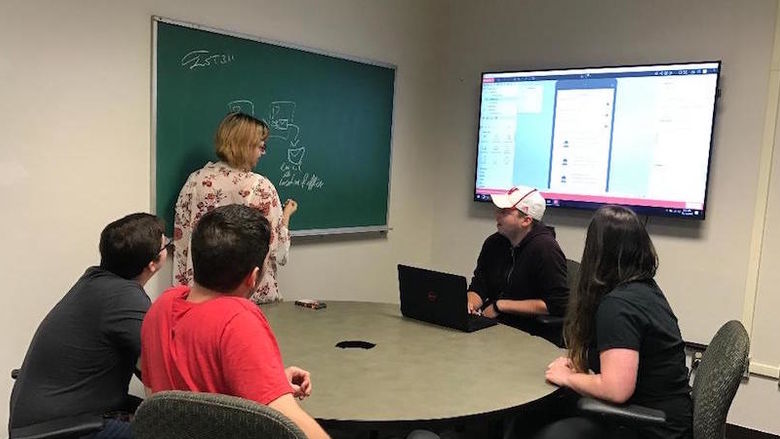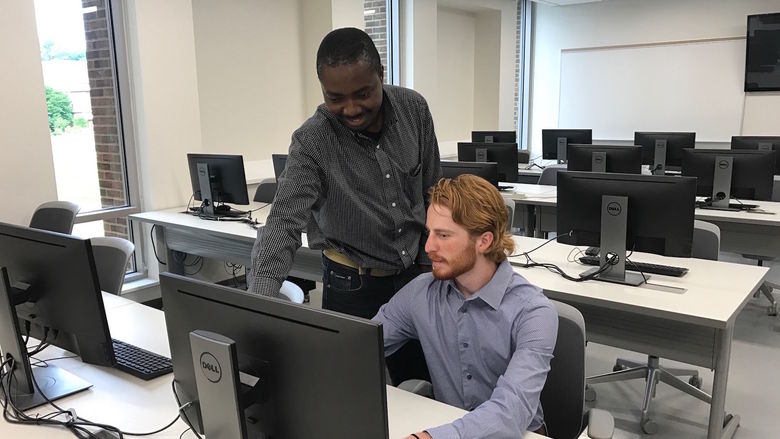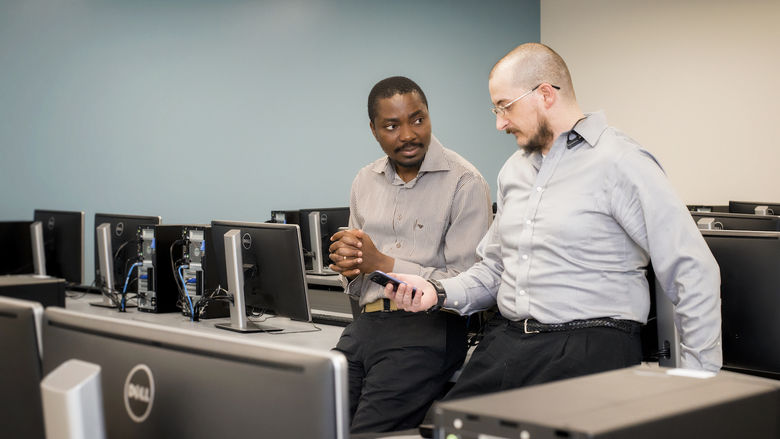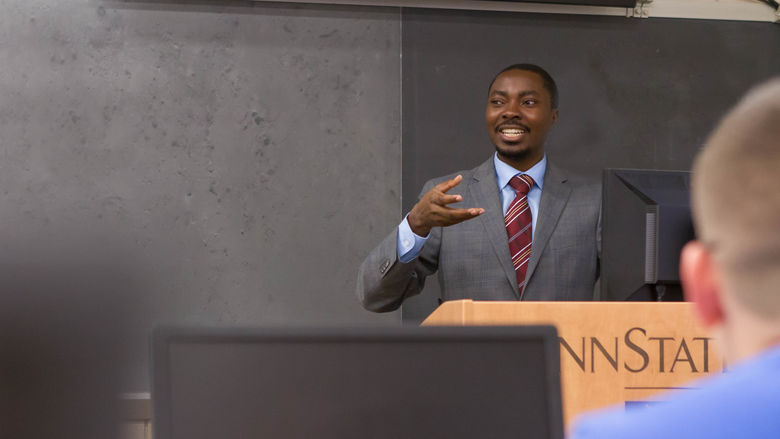MONACA, Pa. — Smartphones have already replaced the pay phone, the CD collection and the disposable camera.
But how about the doctor’s visit?
Richard Lomotey, assistant professor of information sciences and technology at Penn State Beaver, says that’s one of the many things that becomes possible when you apply mobile solutions to real-world problems.
His ideas for mobile technology applications caught the attention of the College of the Liberal Arts at University Park, which has invited Lomotey to present at its Brown Bag Lecture Series. His session, “Using Mobile Technology for Improving Health and Agriculture: Where Do We Stand?” begins at 12:30 p.m. March 23 in 216 Willard Building.
“I want us to understand the cultural impact mobile technology has brought about globally,” he said.
Lomotey’s interest in finding mobile solutions for the seemingly disparate problems in health care and agriculture came from growing up in rural Ghana. There, a life of poverty means you don’t have access to food and health care. And after moving to the U.S., Lomotey quickly realized that both issues could be alleviated with technology.
For example, last year, Lomotey lost a relative to a snakebite. Had that relative been able to access health information via, say, a smartphone, the death could have been prevented.
“It shouldn’t happen when information about symptoms and emergency instructions are only a fingertip away,” he said.
He sees similar applications in the agricultural world, where mobile technology could improve everything from lending and weather forecasting to pesticide use and transportation of goods.
But his true focus is on an issue that has the potential to crush the health care system in the next 30 years — aging baby boomers. Three million baby boomers are retiring each year, taking skilled doctors and nurses out of the workforce and taxing those professionals left behind with their increasing medical needs.
He envisions putting mobile self-assessment tools into the hands of technologically savvy patients, halting unnecessary doctor visits, helping to reduce the burden on health care facilities, and bringing balance to the doctor-patient ratio.
“My passion is to look at how we can help to relieve that impact on the health care system,” Lomotey said.
For more information about Lomotey’s lecture, visit http://afr.la.psu.edu/events.
April Johnston
Public Relations Director, Penn State Beaver



